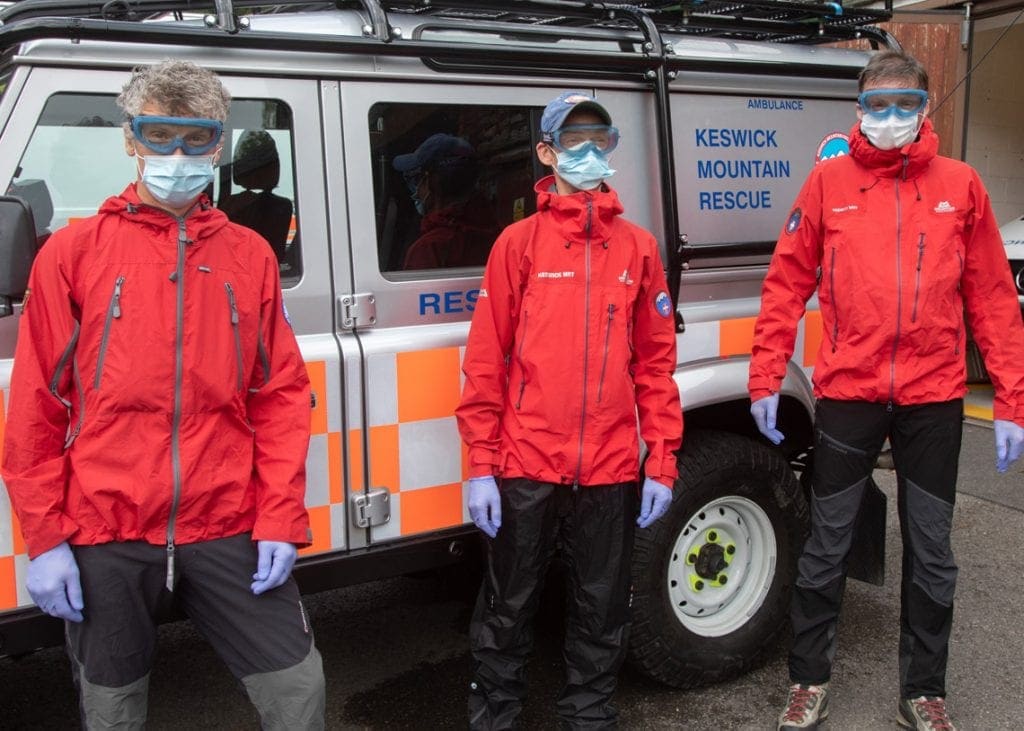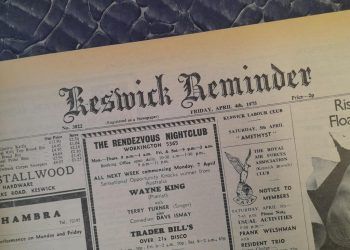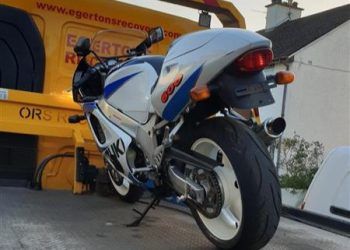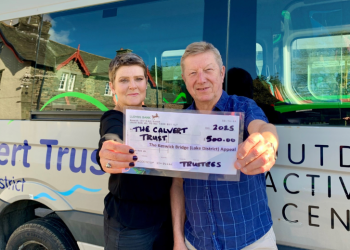The leader of Keswick’s mountain rescue team is asking people to keep off the North Lakes’ remote high fells as lockdown is eased to help reduce the risk of complex call-outs for its volunteers whose numbers are already depleted because of the coronavirus crisis.
Chris Higgins drew up a 21-stage scenario of how a single accident involving a walker slipping and breaking an ankle on Skiddaw could now trigger a more drawn out rescue operation under Covid-19 conditions lasting five-and-a-half hours and involving 20 volunteers, taking up 84 rescuer hours.

If the asymptomatic walker then tested positive for coronavirus when taken to hospital, every volunteer involved in the rescue including base controller and ‘clean-up crew’ would have to self isolate along with their families, ruling out all of them from the team’s call-out list for 14 days. That would mean only 11 volunteers were available from the Keswick team, which has some members unavailable because they are shielding a relative or are at risk themselves due to an underlying medical condition.
Ten more members of the team are frontline NHS medical staff, such as doctors, paramedics and ambulance technicians, who have been giving their all during the pandemic already. Chris says a similar situation applies to neighbouring teams at Cockermouth, Patterdale and Penrith, meaning they cannot guarantee support as they would normally.
“That’s why we’re asking you to think twice, even three times, before you venture onto the higher fells. The risk, however small, is real but the impact on us as a team is substantial,” said Chris, whose volunteer rescuers now all have to observe two-metre social distancing and wear face masks and gloves even in mid-summer temperature.
“We are being asked by walkers, climbers and others who wish to venture into the high fells whether they are ‘open’ and what mountain rescue can advise. We are not, and don’t want to be considered as, a group of enforcers or marshals of the mountains. We enjoy getting out into the fells and helping anyone in need but we’d much rather do it without having to take all of these precautions. I just hope that after reading this everyone has a fuller understanding of the situation Keswick and other mountain rescue teams are in at the moment,” added Chris.
He said the rescue team was a group of volunteers from within the local community who give their time to help people – and sometimes animals – who are injured, lost or distressed in the mountains.
“If people choose to venture into the high fells, then we would hope their decision to do so is an informed one and one that they are happy with and would be considered reasonable by the wider community, including the social media community, if an accident should happen. We all know that anyone could have a slip or stumble while walking, but the consequences of doing so nearer a road are far less than on the high fells,” he said.
Chris’s advice was to go to adventuresmart.uk before going for a walk on the fells.








